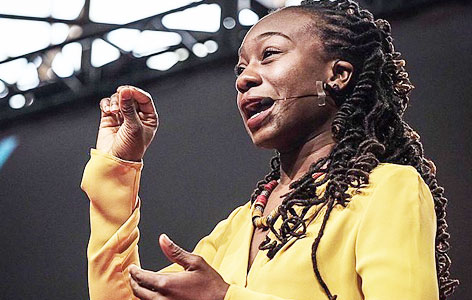
By: Candice Tang, ORT Times Writer
Recently, student interest in science, technology, engineering and math (STEM) topics has been increasing. There are new chapters of Let’s Talk Science opening at schools, along with other organizations that present workshops to young students, encouraging them to choose careers in STEM.
Still, the uptake of STEM among high school and college students remains low. Moreover, according to a study conducted by the Pew Research Center in the US, Black Grade 12 students are least likely to agree with the statement, “I like science”, compared to White, Hispanic and Asian/Pacific Islander students. In a separate study, students who attend low-income schools with a large population of visible minority students were found to earn fewer STEM degrees compared to students attending high-income schools with small populations of visible minorities.
It isn’t that students from low-income and marginalized communities have inherently less interest in STEM than other kids, or that outreach programs are ineffective. There are other barriers that prevent these students from choosing careers in STEM.
That is how Eugenia Duodu felt, growing up as a Black girl in a low-income neighbourhood, with a secret thirst for science. When she was growing up, her school programs lacked the same focus on STEM that are available today. When she saw the stereotypical representation of a scientist in pop culture – often an aging Caucasian man with crazy hair – she didn’t think she fit the image of a scientist. When she saw the lack of Black role models in STEM, she was partly deterred from taking science seriously. As a result, Duodu thought of science as a hobby, not a career. With the encouragement of her mother and her Grade 11 science teacher, she gained the confidence and drive to do what she loved.
As Duodu went on to complete a PhD in chemistry she knew she wanted to become that role model for the next generation of diverse scientists. In 2011, she began volunteering for Visions of Science, a charity that specifically engages low-income, marginalized youth in community-based STEM learning. In 2015, she accepted a full-time position as CEO of the organization, the same year that she defended her PhD.
From community clubs to in-school programming to summer camp, Visions of Science provides kids of all ages with meaningful STEM opportunities. The charity also hosts a formal fundraiser, called the Visionary Gala, now in its fourth year.
“We have had the opportunity to watch so many of the youth that we work with grow in many ways,” said Duodu in an interview with The Toronto Star. “From what I can already see now I am excited about the future of our communities, this city and the country. They are extraordinary and I can’t wait to see all that they do.”
Ultimately, Duodu herself has become a prominent figure in science advocacy. In an interview with TedXToronto, she said she is now honoured to be that person that young people can look up to.




